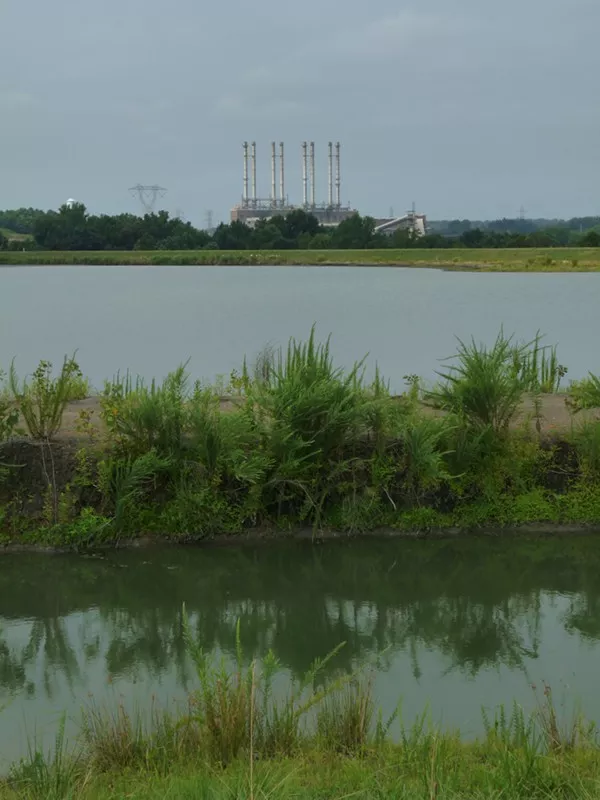Tuesday, July 23, 2013
News / Biz Kennedy on coal ash: 'We are living in a science fiction nightmare'
Posted By Rhiannon Fionn on Tue, Jul 23, 2013 at 2:51 PM
A report released Tuesday by Robert F. Kennedy, Jr.'s Waterkeeper Alliance and other environmental groups finds that coal plants are the largest source of water pollution in the U.S. based on the toxicity of their discharge into fresh water resources. And many of those plants are permitted to discharge unlimited amounts of pollutants known to be in coal ash such as arsenic, cadmium, boron, lead, mercury or selemium - all of which are known to cause serious health problems in humans.
According to the report, the U.S. Environmental Protection Agency and states already have all of the information they need in order to regulate coal ash and to protect the nation's drinking water resources.
"The only thing missing now is the political will," said Eric Schaeffer, executive director of the Environmental Integrity Project.
Last week in North Carolina, the state's Department of Environment and Natural Resources called for additional studies on coal ash pollution in a proposed settlement with Duke Energy over alleged water pollution in both Mountain Island Lake, Charlotte's main drinking water source, and the French Broad River in Asheville.
Here are the report's main points:
* Of the 274 coal plants that discharge coal ash and scrubber wastewater into waterways, nearly 70 percent (188) have no limits on the toxics most commonly found in these discharges (arsenic, boron, cadmium, lead, mercury, and selenium) that are dumped directly into rivers, lakes, streams and bays.
* Of these 274 coal plants, more than one-third (102) have no requirements to monitor or report discharges of these toxic metals to government agencies or the public.
* A total of 71 coal plants surveyed discharge toxic water pollution into rivers, lakes, streams and bays that have already been declared impaired due to poor water quality. Of these plants that are dumping toxic metals into impaired waterways, more than three out of four coal plants (59) have no permit that limits the amount of toxic metals it can dump.
* Nearly half of the coal plants surveyed (187) are operating with an expired Clean Water Act permit. 53 of these power plants are operating with permits that expired five or more years ago.
Read the report yourself: Closing the Floodgates: How the Coal Industry is Poisoning Our Water and How We Can Stop It.
The report is being released Tuesday at a press conference near Duke Energy's Riverbend coal plant, which is located less than a dozen miles from uptown. In a conference call this morning before the presser, Kennedy said, "Americans are being injured by this. Environmental crime is a real crime. Environmental laws are real laws, and they have real victims. We are living today in a science fiction nightmare."

- Rhiannon Fionn
- Looking across one of the two unlined, high-hazard coal ash ponds at Duke Energy's Riverbend coal plant. The pond was built in 1957, covers over 40 surface acres and is 80-feet deep.















